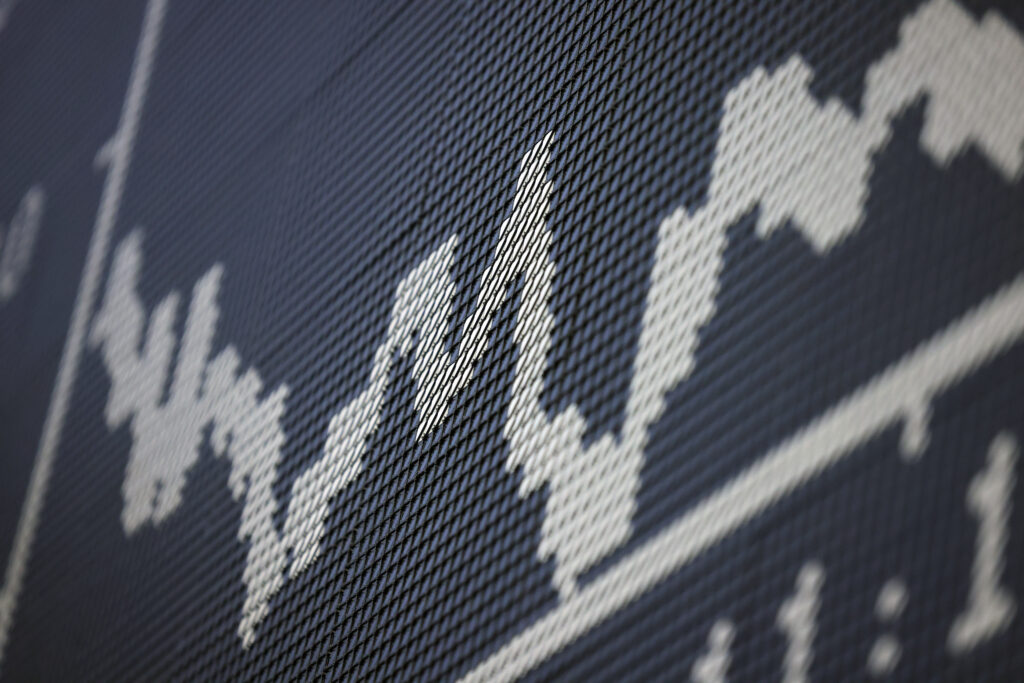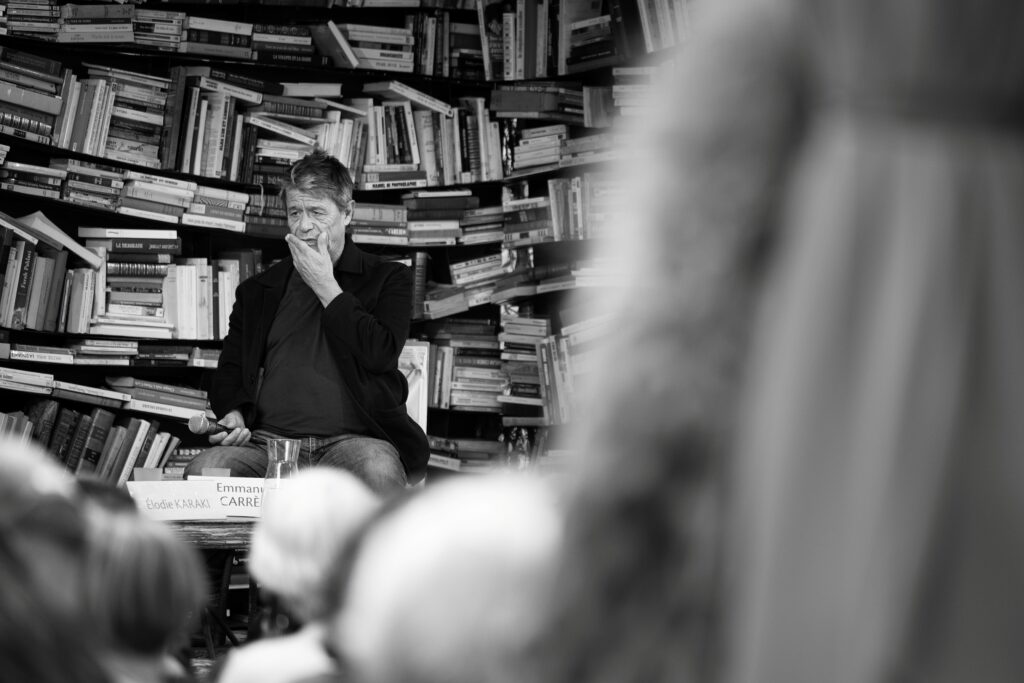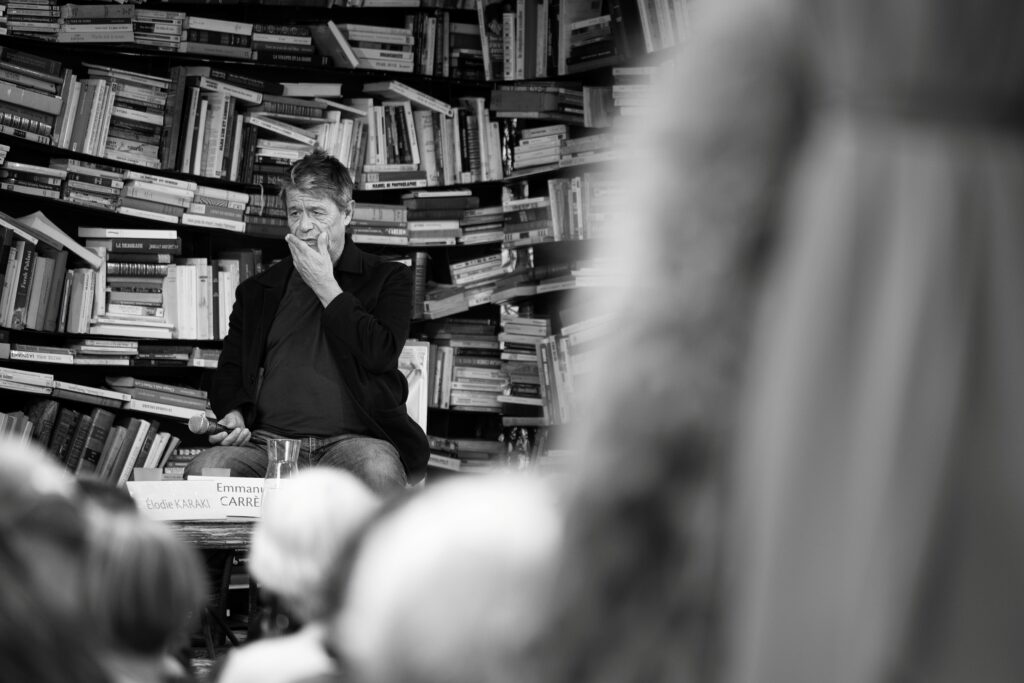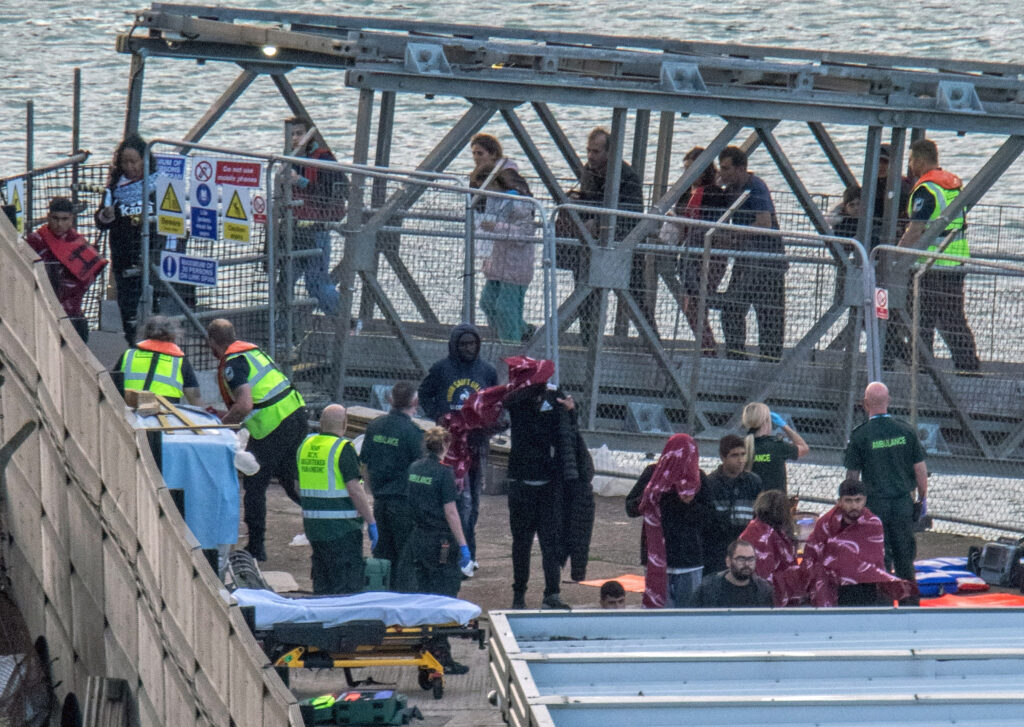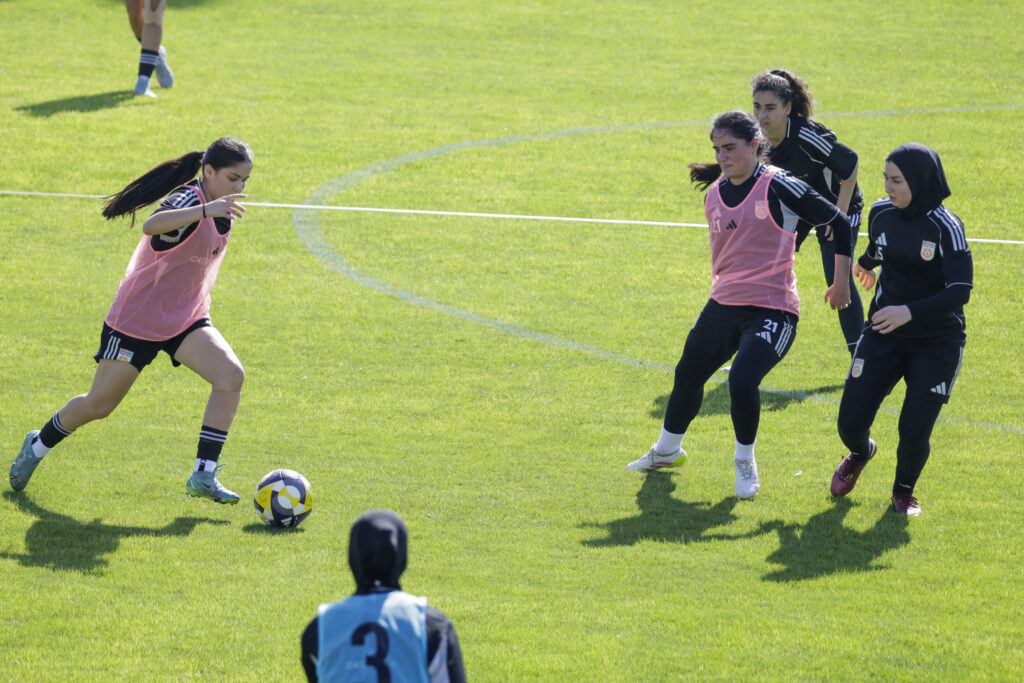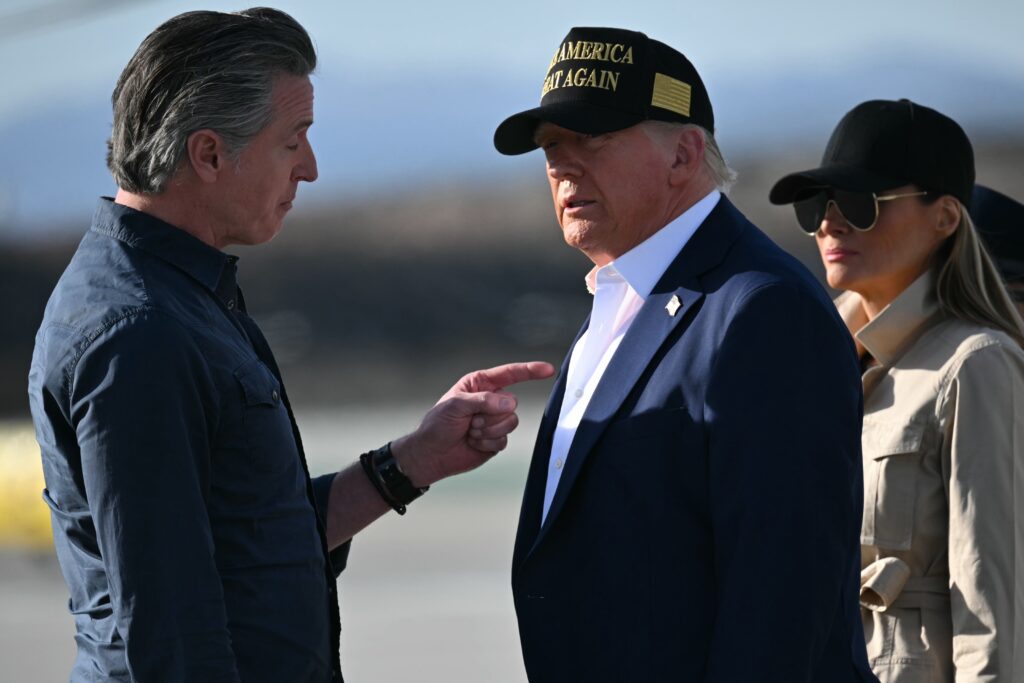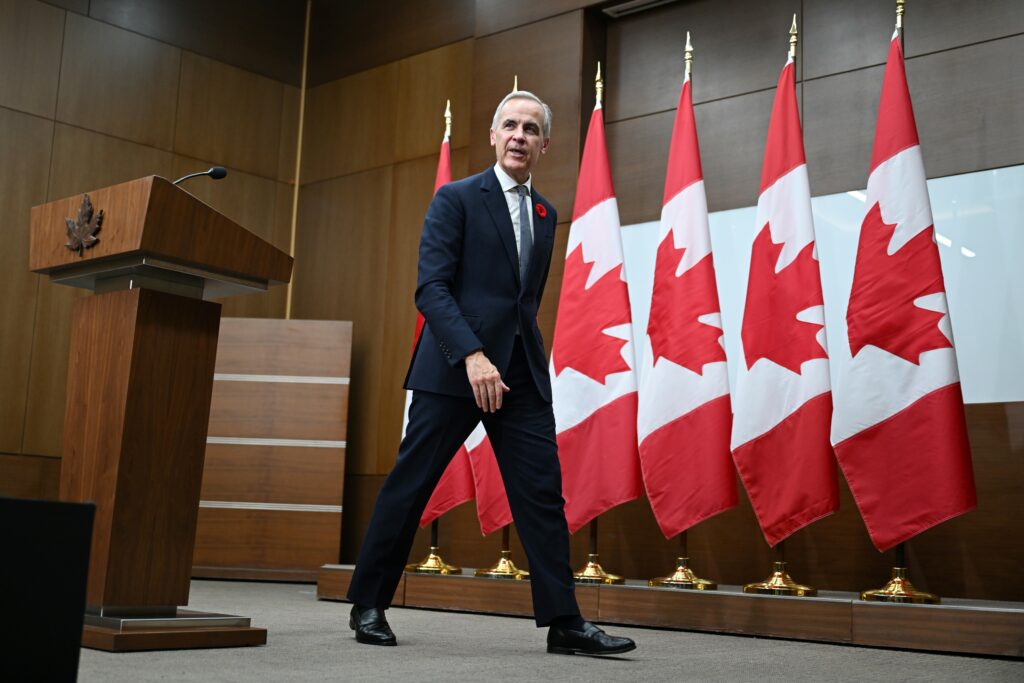Asian markets swing as trades eye tech rally, US rate outlook
Asian markets fluctuated Tuesday as investors assessed the latest tech rally on Wall Street amid worries a bubble is forming in the sector, while mixed signals from Federal Reserve officials fed uncertainty over its next interest rate move.A flood of multi-billion-dollar investment into artificial intelligence has been a key driver of the surge in mostly technology equities across the globe this year, sending valuations to record highs.The rally has been helped by easing trade tensions since US President Donald Trump’s April tariff bombshell and expectations that the Fed will continue lowering borrowing costsThere is also a fear of missing out, in turn pushing prices up further, but there is increasing talk that the gains may have gone too far — with most of the gains coming from the tech sector — and a painful correction could be on the way.ChatGPT-maker OpenAI signed a $38 billion deal with Amazon’s AWS cloud computing arm, marking its latest huge tie-up following agreements with Oracle, Broadcom, AMD and chip titan Nvidia.”Even after the tariff-induced swoon in April, global equities have tacked on $17 trillion in market value, with the rally increasingly bottlenecked into the same handful of tech titans,” wrote SPI Asset Management’s Stephen Innes.”It’s as if the entire market has narrowed to a single crowded corridor, the walls lined with AI logos and venture dreams. “Amazon’s move simply adds another rocket to the booster stack — and traders are cheering the ignition, not asking how much fuel remains.”Wall Street ended on a mixed note, with the tech-rich Nasdaq rising along with the S&P 500 but the Dow in the red.Asia struggled to extend Monday’s advances.Hong Kong rose with Wellington, Manila and Jakarta but Tokyo, Sydney, Singapore, Seoul and Taipei edged down with Shanghai flat.Remarks from Fed officials did little to provide support for further buying after boss Jerome Powell indicated last week that a third rate cut this year — after one in each of the past two meetings — was not definite.Governor Lisa Cook said she saw inflation remaining elevated in the coming year as tariffs bite, pointing out that some businesses had indicated they were running down inventories before passing on costs to consumers.”Looking ahead, policy is not on a predetermined path,” Cook said. “We are at a moment when risks to both sides of the dual mandate are elevated,” she added, referring to the bank’s target to support jobs while keeping rates at a level to put a cap on inflation. “Every meeting, including December’s, is a live meeting.”Meanwhile, Chicago Fed chief Austan Goolsbee said his main worry was inflation, while San Francisco boss Mary Daly was open to any options with regards to a cut in December. Governor Stephen Miran, a Trump nominee, wanted to see more cuts.”The divergence in opinions reinforces Fed Powell’s assessment that another fed funds rate in December is not a foregone conclusion, with the lack of data adding to the need to wait before making a decision (when driving in a fog, best to slow down),” wrote National Australia Bank’s Rodrigo Catril.Data on Monday indicated some further weakness in the US economy, with a key gauge of activity in the manufacturing sector contracting more than expected and for an eighth straight month in October as demand and output weakened.- Key figures at around 0230 GMT -Tokyo – Nikkei 225: DOWN 0.1 percent at 52,361.14 (break)Hong Kong – Hang Seng Index: UP 0.2 percent at 26,207.16Shanghai – Composite: FLAT at 3796.80Euro/dollar: DOWN at $1.1506 from $1.1518 on MondayPound/dollar: DOWN at $1.3120 from $1.3138Dollar/yen: UP at 154.31 yen from 154.20 yenEuro/pound: UP at 87.70 pence from 87.67 penceWest Texas Intermediate: DOWN 0.2 percent at $60.93 per barrelBrent North Sea Crude: DOWN 0.2 percent at $64.76 per barrelNew York – Dow: DOWN 0.5 percent at 47,336.68 (close)London – FTSE 100: DOWN 0.2 percent at 9,701.37 (close)
Emmanuel Carrère et Laurent Mauvignier, favoris pour le prix Goncourt
Emmanuel Carrère ou Laurent Mauvignier? Sauf surprise, le prix Goncourt devrait sacrer mardi l’un de ces deux écrivains de premier plan, dont les nouveaux romans sont applaudis par les critiques et les lecteurs. Les 10 jurés de l’Académie Goncourt se réunissent à la mi-journée à Drouant, célèbre restaurant proche de l’Opéra à Paris, pour se mettre d’accord sur le nom du lauréat du plus illustre des prix littéraires français.Les candidats encore en lice sont quatre: Nathacha Appanah avec “La nuit au coeur” (Gallimard), Emmanuel Carrère avec “Kolkhoze” (P.O.L), Laurent Mauvignier avec “La maison vide” (Minuit) et la Belge Caroline Lamarche pour “Le bel obscur” (Seuil).Mais, selon les derniers pronostics, la compétition devrait se jouer entre Emmanuel Carrère, 67 ans, souvent récompensé mais jamais encore par le Goncourt, et Laurent Mauvignier, 58 ans, qui n’a pas encore reçu de grands prix d’automne.Nathacha Appanah faisait également figure de possible lauréate jusqu’à ce qu’elle obtienne lundi le prix Femina. Or il est extrêmement rare qu’un même auteur reçoive deux prix prestigieux pour le même livre.Quant à Caroline Lamarche, ses chances semblent minces même si son livre a été bien accueilli par la critique. En 2024, le suspense avait été moins intense avec “Houris”, du Franco-Algérien Kamel Daoud, très vite considéré comme le grand favori.”De toutes façons, les choses ne nous appartiennent pas. Donc, je fais comme les autres auteurs, j’attends” la décision du jury, a déclaré Laurent Mauvignier à l’AFP en octobre.Il s’est dit toutefois “touché” de constater que, lors de ses rencontres en librairies, de nombreux lecteurs lui souhaitaient “bonne chance pour le Goncourt”, “comme si c’était un enjeu important pour eux”. – Fresques familiales -Si leur style d’écriture est très différent, Emmanuel Carrère et Laurent Mauvignier ont en commun d’avoir chacun écrit une vaste et ambitieuse fresque familiale, respectivement de 560 et 750 pages.”Kolkhoze” fait voyager le lecteur. Il l’emmène en Géorgie et Russie sur les traces de la famille de la mère de l’auteur, l’historienne et académicienne Hélène Carrère d’Encausse, décédée en 2023 à 94 ans. Ce livre “a été facile à écrire”, a reconnu Emmanuel Carrère, en indiquant l’avoir “écrit dans un rapport affectueux avec tous les gens” dont il parlait.A contrario, “La maison vide” est ancrée dans un lieu immobile, la bâtisse d’un village de Touraine où ont vécu les ascendants de Laurent Mauvignier.Il raconte les joies – rares – et les peines d’une famille corsetée par les traditions et frappée de plein fouet par les deux guerres mondiales du XXe siècle.”Je crois que mon histoire familiale ressemble à celle de millions de Français, avec ses zones d’ombre et ses parts plus glorieuses”, a expliqué Laurent Mauvignier. “Kolkhoze” et “La maison vide” font partie des romans les plus vendus depuis le début de la rentrée littéraire, à la satisfaction des maisons d’édition P.O.L et Minuit, toutes deux liées à Madrigall, le groupe de Gallimard.Les ventes de celui sur lequel sera apposé le bandeau rouge “Prix Goncourt” devraient être démultipliées, comme en ont bénéficié les récents lauréats, qui ont parfois dépassé les 500.000 exemplaires écoulés. Une aubaine dans un climat morose pour l’édition, avec un recul des ventes de 5,7% en volume en septembre par rapport au même mois de 2024, selon les chiffres de Livres Hebdo.Pour le prix Renaudot, annoncé en même temps que le Goncourt, la compétition semble ouverte entre les cinq romans francophones en lice: Feurat Alani (“Le ciel est immense”), Anne Berest (“Finistère”), Adélaïde de Clermont-Tonnerre (“Je voulais vivre”), Justine Lévy (“Une drôle de peine”) et Louis-Henri de La Rochefoucauld (“L’amour moderne”).
Emmanuel Carrère et Laurent Mauvignier, favoris pour le prix Goncourt
Emmanuel Carrère ou Laurent Mauvignier? Sauf surprise, le prix Goncourt devrait sacrer mardi l’un de ces deux écrivains de premier plan, dont les nouveaux romans sont applaudis par les critiques et les lecteurs. Les 10 jurés de l’Académie Goncourt se réunissent à la mi-journée à Drouant, célèbre restaurant proche de l’Opéra à Paris, pour se mettre d’accord sur le nom du lauréat du plus illustre des prix littéraires français.Les candidats encore en lice sont quatre: Nathacha Appanah avec “La nuit au coeur” (Gallimard), Emmanuel Carrère avec “Kolkhoze” (P.O.L), Laurent Mauvignier avec “La maison vide” (Minuit) et la Belge Caroline Lamarche pour “Le bel obscur” (Seuil).Mais, selon les derniers pronostics, la compétition devrait se jouer entre Emmanuel Carrère, 67 ans, souvent récompensé mais jamais encore par le Goncourt, et Laurent Mauvignier, 58 ans, qui n’a pas encore reçu de grands prix d’automne.Nathacha Appanah faisait également figure de possible lauréate jusqu’à ce qu’elle obtienne lundi le prix Femina. Or il est extrêmement rare qu’un même auteur reçoive deux prix prestigieux pour le même livre.Quant à Caroline Lamarche, ses chances semblent minces même si son livre a été bien accueilli par la critique. En 2024, le suspense avait été moins intense avec “Houris”, du Franco-Algérien Kamel Daoud, très vite considéré comme le grand favori.”De toutes façons, les choses ne nous appartiennent pas. Donc, je fais comme les autres auteurs, j’attends” la décision du jury, a déclaré Laurent Mauvignier à l’AFP en octobre.Il s’est dit toutefois “touché” de constater que, lors de ses rencontres en librairies, de nombreux lecteurs lui souhaitaient “bonne chance pour le Goncourt”, “comme si c’était un enjeu important pour eux”. – Fresques familiales -Si leur style d’écriture est très différent, Emmanuel Carrère et Laurent Mauvignier ont en commun d’avoir chacun écrit une vaste et ambitieuse fresque familiale, respectivement de 560 et 750 pages.”Kolkhoze” fait voyager le lecteur. Il l’emmène en Géorgie et Russie sur les traces de la famille de la mère de l’auteur, l’historienne et académicienne Hélène Carrère d’Encausse, décédée en 2023 à 94 ans. Ce livre “a été facile à écrire”, a reconnu Emmanuel Carrère, en indiquant l’avoir “écrit dans un rapport affectueux avec tous les gens” dont il parlait.A contrario, “La maison vide” est ancrée dans un lieu immobile, la bâtisse d’un village de Touraine où ont vécu les ascendants de Laurent Mauvignier.Il raconte les joies – rares – et les peines d’une famille corsetée par les traditions et frappée de plein fouet par les deux guerres mondiales du XXe siècle.”Je crois que mon histoire familiale ressemble à celle de millions de Français, avec ses zones d’ombre et ses parts plus glorieuses”, a expliqué Laurent Mauvignier. “Kolkhoze” et “La maison vide” font partie des romans les plus vendus depuis le début de la rentrée littéraire, à la satisfaction des maisons d’édition P.O.L et Minuit, toutes deux liées à Madrigall, le groupe de Gallimard.Les ventes de celui sur lequel sera apposé le bandeau rouge “Prix Goncourt” devraient être démultipliées, comme en ont bénéficié les récents lauréats, qui ont parfois dépassé les 500.000 exemplaires écoulés. Une aubaine dans un climat morose pour l’édition, avec un recul des ventes de 5,7% en volume en septembre par rapport au même mois de 2024, selon les chiffres de Livres Hebdo.Pour le prix Renaudot, annoncé en même temps que le Goncourt, la compétition semble ouverte entre les cinq romans francophones en lice: Feurat Alani (“Le ciel est immense”), Anne Berest (“Finistère”), Adélaïde de Clermont-Tonnerre (“Je voulais vivre”), Justine Lévy (“Une drôle de peine”) et Louis-Henri de La Rochefoucauld (“L’amour moderne”).
Des passeurs présumés jugés pour un naufrage meurtrier dans la Manche en 2023
Neuf hommes soupçonnés de former un réseau de passeurs à l’origine d’un naufrage qui avait causé la mort de sept migrants en 2023 dans la Manche sont jugés à partir de mardi à Paris, un procès qui doit permettre de disséquer les rouages de ces filières clandestines.Dans ce dossier aux ramifications internationales, deux Irakiens, six Afghans, ainsi qu’un Soudanais — soupçonné d’avoir piloté le bateau transportant 65 victimes vers le Royaume-Uni — sont renvoyés devant le tribunal correctionnel notamment pour homicide involontaire. Parmi les prévenus âgés entre 23 et 45 ans, dont deux font l’objet d’un mandat d’arrêt, plusieurs sont également poursuivis pour mise en danger d’autrui, aide à l’entrée, à la circulation ou au séjour irréguliers ainsi qu’association de malfaiteurs.Un dixième homme, soudanais, mineur au moment du drame, est renvoyé devant un tribunal pour enfants.L’enquête sur ce naufrage, l’un des plus meurtriers survenu depuis l’explosion en 2018 des traversées clandestines de la Manche, a mis au jour “un système organisé et structuré sur les territoires français et allemand proposant à des migrants en situation irrégulière de tenter de se rendre en Angleterre”, ont écrit dans leur ordonnance de renvoi les deux juges chargées de l’instruction, Valérie Culioli et Sophie Aleksic.Les faits remontent à la nuit du 11 au 12 août 2023, lorsqu’un “small boat” surchargé, un bateau non rigide de sept mètres renforcé par une planche de bois, est mis à l’eau vers 02H00 sur une plage du Nord, près de Calais.En haute mer, une avarie de moteur survient vers 4H00, un boudin se déchire, l’embarcation de fortune se recroqueville et éjecte les passagers dépourvus de gilets de sauvetage, tous afghans, ainsi que les deux Soudanais, pilotes présumés: six corps sont repêchés, un autre sera retrouvé plus tard sur une plage des Pays-Bas, tandis que les autres naufragés survivants sont pris en charge par les secours maritimes français et britanniques.- Un réseau, deux filières -Le procès, qui devra déterminer les degrés de responsabilité individuelle des prévenus, interrogera également les mécanismes des réseaux de passeurs à l’œuvre derrière les traversées périlleuses qui sont au cœur de tensions régulières entre la France et le Royaume-Uni.A la faveur d’une coopération avec plusieurs pays européens, les enquêteurs ont découvert un réseau “dirigé par la communauté irako-kurde” avec deux branches: la première, avec l’Allemagne pour base arrière, s’occupait de l’aspect logistique, tandis qu’une “filière afghane” était chargée du recrutement des “candidats au passage”, selon l’ordonnance de renvoi.Des organisations qui “reposent sur un modèle extrêmement flexible, fonctionnant sur la base de réseaux sociaux, familiaux et claniques” qui vont jusqu’à “l’exercice de violences y compris avec arme et de menaces” pour faire prospérer une “activité de trafic s’avérant particulièrement lucrative”, selon le document.D’après les auditions des rescapés, le passage vers l’Angleterre leur était facturé entre 1.300 et 1.500 euros par personne.Quant aux deux pilotes présumés — qui nient avoir tenu ce rôle —, deux Soudanais qui avaient eux-mêmes débarqué quelques semaines plus tôt clandestinement sur l’île italienne de Lampedusa avant de rallier Calais, “leur rôle au sein de l’organisation de la filière d’immigration illégale doit être distingué du rôle central des passeurs”, ont estimé les magistrats.Fin juin, dans un dossier similaire, neuf passeurs, afghans pour la plupart, ont été condamnés à Lille à sept et huit ans d’emprisonnement pour un naufrage dans la Manche qui avait coûté la vie à huit candidats à l’exil en décembre 2022.Le drame le plus meurtrier connu à ce jour sur cette route migratoire, survenu en novembre 2021 avec 27 morts, n’a pas encore fait l’objet d’un procès.Celui qui s’ouvre mardi doit durer jusqu’au 18 novembre.
In Morocco, exiled Afghan women footballers find hope on the pitch
Manoozh Noori said she “wanted to die” when the Taliban returned to power in Afghanistan in 2021. That meant she could no longer do what she loved most: playing football.Noori, now 22, fled the country where the United Nations say authorities have implemented a “gender apartheid”, and has been playing in a team of Afghan refugee women, recently taking part in a first-of-its-kind tournament in Morocco.”I had asked myself: do I want to stay in this country with people who want to forbid women from studying, from playing football, from doing anything?” Noori told AFP.The Taliban authorities, who say that women’s rights are protected by Islamic law, have banned girls and women from schools beyond the age of 12, and also from most jobs and public services — and from playing sports.Noori had defied family pressure to represent Afghanistan professionally by playing for the country’s national women’s squad before a Taliban government returned to power.She said she buried her trophies and medals in her family’s backyard and left the country for Australia.Noori’s team, Afghan Women United, was formed between Europe and Australia, where other teammates have also been living since 2021.- ‘A beautiful story’ -The team played their first international matches at the FIFA Unites: Women’s Series late last month in Morocco — and Noori scored the team’s first goal in the opening game against Chad.They went on to lose both to Chad and Tunisia although they registered a big 7-0 win against Libya. But the tournament overall was a major win for the Afghan women.FIFA President Gianni Infantino, who attended one of their games, described their participation as “a beautiful story” that the women were writing “for so many girls and women all over the world”.Nilab Mohammadi, a 28-year-old striker and former soldier who also represented the Afghan national team, said football was “not just a sport — it represents life and hope”.”There is no more freedom in Afghanistan, especially for Afghan women,” Mohammadi added. “But now, we are going to be their voice.”Twenty-year-old midfielder Mina Ahmadi said “a dream was taken away from us” back home, “but when FIFA recognised us, it was as if a part of that dream came true”.”This new adventure is a happy moment for us,” added Ahmadi, who is now studying medical sciences in Australia. “It won’t stop anytime soon, because we will keep moving forward.”- ‘Just to play football’ -FIFA has yet to decide whether the refugee team can compete in official international matches as representing Afghanistan, but the players remain determined to get there.The Afghan Women United now have one goal: to have the squad recognised by FIFA as the Afghan national women’s team since women in the country are not allowed to play the game.”These women are incredible,” said Aish Ravi, a researcher on gender equity in sports who worked with several of the players when they first arrived in Australia in 2021.”They are strong and inspiring,” she added. “They’ve had to overcome enormous adversity just to play football.”This sport is more than a game,” Ravi said. “It symbolises freedom for them.”Ahmadi said she dreamed of playing in Europe one day, but being far from home can prove difficult.”It’s very hard to get used to a country where you didn’t grow up,” she said. “You miss your family and friends… But we have to keep moving forward.”
California votes on skewing election districts to counter Trump
Californians go to the polls Tuesday in a ballot likely to further tilt the liberal state towards the Democrats, as the party seeks to neutralize gerrymandering ordered by President Donald Trump.Governor Gavin Newsom and his allies want voters to approve a temporary re-drawing of electoral districts that would give the Democratic Party five more seats in the scramble for control of the US Congress in next year’s midterm elections.They say they are only doing it to level the playing field after Texas Republicans pushed through their own redistricting — under White House pressure — to help maintain a narrow Congressional majority that has so far given Trump carte blanche.Republicans say it is a naked power grab that will disenfranchise the party’s voters in California, a state where they are heavily outnumbered by Democrats.The vote is “a political ink-blot test,” Los Angeles Times columnist Mark Barbarak wrote Monday.”A reasoned attempt to even things out in response to Texas’ attempt to nab five more congressional seats. Or a ruthless gambit to drive the California GOP to near-extinction.”What many California voters see depends on, politically, where they stand.”- Gerrymandering -Electoral districts across the US are traditionally drawn following the national census taken every ten years, theoretically so the electoral map reflects the people who live there.In reality, most boundaries are party political decisions, so whichever grouping is in power at the time gets to set the rules for the next decade’s contests.California did away with such partisan gerrymandering under former governor Arnold Schwarzenegger, giving the power instead to an independent panel. If “Proposition 50″ passes on Tuesday, politically drawn boundaries will take effect for all elections until the next census, when the panel will once again determine the maps.- ‘Stick it to Trump’ -Like almost everything in US politics at the moment, one figure looms over Tuesday’s vote.”Stick it to Trump on November 4th,” booms one of the largest advertising campaigns.The accompanying TV commercial has an irate Trump gorging on fast food as he hate-watches the imagined election result, jabbing at his TV control as he mutters about his victimhood.”If the Democrats don’t get dirty and get in the mud with the Republicans to fight back, we’re going to get run over,” 61-year-old contractor Patrick Bustad told canvassers in Los Angeles last week.Trump “wants to be a dictator, not a president,” said Bustad, recalling how the Republican refused to concede the 2020 presidential election.Opponents of Proposition 50 have their own bogeyman.Newsom “wants it his way so he can rig it,” retiree Paula Patterson told AFP in the oil-producing town of Taft last month.”The Democrats are going to take over, and we’re not going to have any rights,” she said.Polls predict the initiative will pass handily — offering Newsom high-profile proof of his willingness to stand up to Trump.For a man widely expected to take a run at the White House in 2027, that would be very helpful.The telegenic governor has already begun projecting an air of confident authority, with his campaign largely winding up a week before the ballot.”You can stop donating,” he told supporters.
Le puissant typhon Kalmaegi a touché terre aux Philippines
Le puissant typhon Kalmaegi traverse les Philippines mardi après avoir touché terre dans une région déjà frappée par des tempêtes parmi les plus meurtrières du pays où plus de 150.000 personnes ont été évacuées ces derniers jours. Le typhon, avec des vents de 150 km/h et des rafales pouvant atteindre 205 km/h, a touché terre pour la première fois lundi soir avant 23H00 (15H00 GMT) dans la province des îles Dinagat, qui fait partie de l’archipel des Visayas, dans l’est du pays, a indiqué le service météorologique national.À peine une heure plus tôt, à Dinagat, Miriam Vargas, 34 ans, était assise dans le noir avec ses deux enfants, la tempête ayant coupé l’électricité.”Pour l’instant, il y a de fortes pluies et des vents violents. Nous sommes assis sur les escaliers et nous prions tout en essayant d’évaluer la force du typhon”, a rapporté cette mère célibataire à l’AFP. “Le vent siffle et on entend des objets tomber. L’électricité a été coupée il y a environ une heure et nous ne voyons plus rien.”Environ 10.000 à 15.000 personnes ont été mises à l’abri dans les îles Dinagat, selon son gouverneur, Nilo Demerey.Joy Conales, une responsable de la gestion des catastrophes, a déclaré que les habitants de la ville de Loreto avaient été invités à évacuer vers des zones plus élevées. La localité dispose d’une digue d’une hauteur d’un étage destinée à protéger le centre-ville des vagues.Roel Montesa, un responsable de la gestion des catastrophes naturelles de la province de Leyte, au nord de Dinagat, avait indiqué un peu plus tôt que des évacuations étaient en cours à Palo et Tanauan. Ces deux circonscriptions, peuplées au total de 140.000 personnes selon le dernier recensement de 2024, avaient déjà été frappées durement en 2013 par le super-typhon Haiyan, qui avait tué au moins 6.000 personnes.- D’autres tempêtes attendues -Des milliers de mises à l’abri ont par ailleurs lieu depuis dimanche sur l’île voisine de Samar, où des vagues de trois mètres étaient attendues, selon un responsable de la défense civile, Randy Nicart. “Certaines administrations locales ont recours à des évacuations forcées”, a-t-il déclaré.À 20H00 heure locale lundi, “près de 156.000 personnes” avaient été évacuées de manière préventive, a indiqué Rafaelito Alejandro, administrateur adjoint du bureau de la défense civile, lors d’une conférence de presse.Chaque année, une vingtaine de tempêtes ou typhons frappent les Philippines ou s’en approchent, les régions les plus pauvres du pays étant généralement les plus durement touchées. Après Kalmaegi, la météorologue Charmaine Varilla s’attend à ce que “trois à cinq” autres tempêtes frappent le pays asiatique d’ici la fin de l’année, explique-t-elle à l’AFP.Les Philippines ont été frappées en septembre par les meurtriers tempête Bualoi et typhon Ragasa.Selon les experts, le changement climatique favorise des phénomènes météorologiques extrêmes plus fréquents et plus intenses.
Canada PM says first budget will help reduce reliance on US
Canadian Prime Minister Mark Carney’s government presents its first budget on Tuesday, a spending plan he says will provide “the answer” for an economy starting to buckle under US tariffs.Carney, who led the central banks of Canada and England before entering politics this year, has pitched himself as the ideal person to steer Canada through unprecedented disruption in US ties caused by President Donald Trump. Trump’s tariffs have hit Canada hard, driving up unemployment and squeezing businesses in crucial targeted sectors like autos, aluminum, and steel.”Where are we going to find the growth given the headwinds from the new US trade policy?,” Carney told reporters in South Korea this weekend, following an Asia summit.”What this budget will do is provide the answer to that question.” His Liberal government says the budget will address the stark new geopolitical realities facing Canada.Specific details of the spending plan are being kept under wraps until the finance minister unveils the budget in parliament on Tuesday. Among the headline items will be expected major increases in defense spending to bring Canada in line with NATO targets.Funds will also be allocated to a series of national projects that Carney has said are key to Canada’s economic sovereignty, given the “rupture” in economic relations with the United States.These range from port expansion to energy production and the infrastructure needed to boost extraction of critical minerals from remote areas.Finance Minister Francois-Philippe Champagne called the measures he’ll present on Tuesday as “an investment budget.””The idea is to build the Canada of tomorrow.”- ‘Not a game’ -Carney, who replaced Justin Trudeau as prime minister in January before being elected to a full term in April, has consistently warned Canadians that the Trump-era disruptions in US-Canada relations are not a passing phase.He said this weekend that the budget would help “reduce our reliance on the United States,” but noted that such a transformational shift “can’t happen overnight.”Carney’s April election win left his Liberals three seats short of a majority in parliament. That means the government needs opposition support — or abstentions — to pass its budget.Because the budget is a confidence vote, its defeat would trigger fresh elections.The Conservatives, the largest opposition party in parliament, may be the least likely to help.Party leader Pierre Poilievre has made a range of demands in exchange for his support, including deficit reduction.But University of Ottawa public policy expert Genevieve Tellier told AFP she expects the deficit to be “very large.”The left-wing New Democrats, who no longer have official party status in parliament after a dismal election performance in April, may prove reluctant to trigger another vote and could abstain on Carney’s budget.Tellier said she saw “little chance” of the government falling.Asked over the weekend if he was confident his budget would pass, Carney said: “I am 100 percent confident that this budget is the right budget for this country, at this moment.””This is not a game,” he added, voicing readiness to defend his proposals in an election if necessary.

